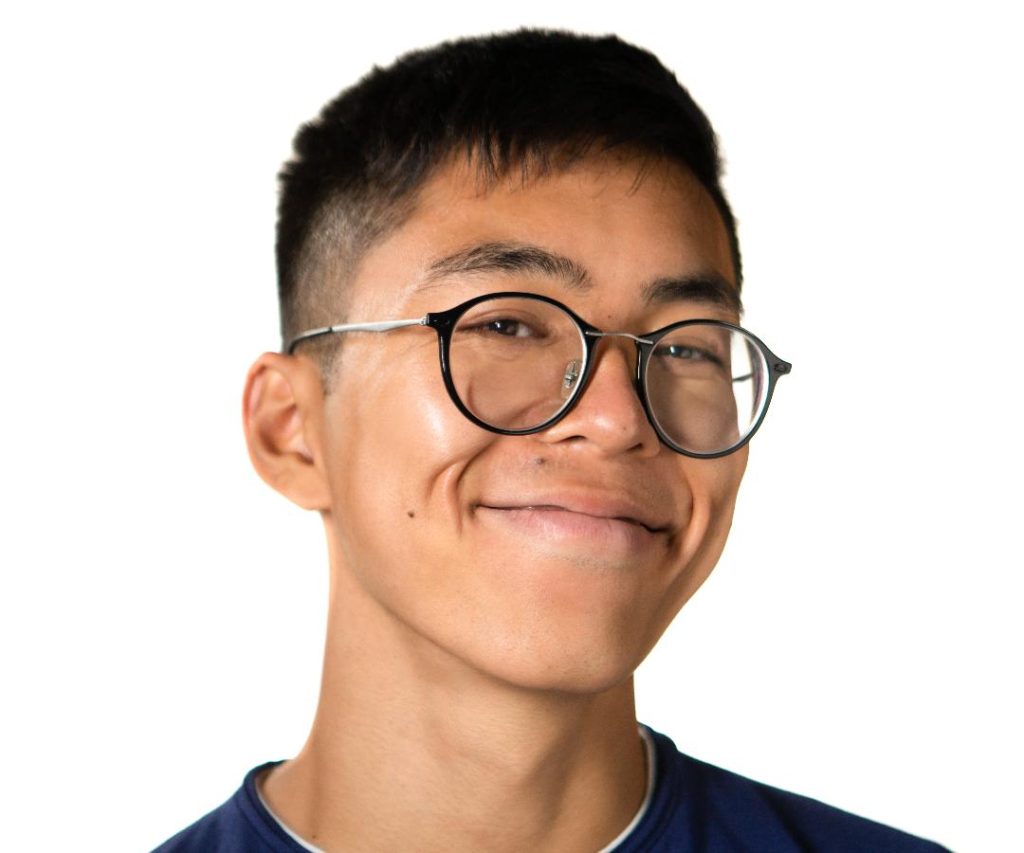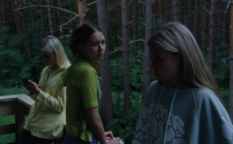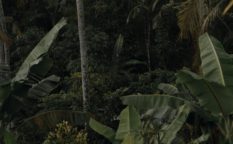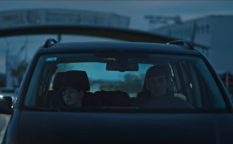Xin Alessandro Zheng: It is funny that me becoming a director happened as an accident

Xin Allessandro Zheng’s short drama Where The Leaves Fall is a story about a young second-generation Chinese-Italian man who goes to a brief trip to China to bring his father’s ashes to his hometown. The film is Zhang’s exploration of his own identity.
Where The Leaves Fall screened in the international competition of Ca’ Foscari short film festival in Venice, where it won the award for the Best Artistic Contribution. We wanted to talk to Zheng long before the awards were announced, and the interview took place during the festival, and before the award ceremony.
Can you introduce yourself to our readers in your own words?
I was born in Italy in Milan by two Chinese parents. I studied economics during the highschool, because my parents raised me to be ‘practical’ and to have a concrete job, like an accountant or engineer. Because of this way of thinking, I never studied art, or never thought about cinema as a career choice. When I finished my highschool, I had a change of heart, so I chose media design at NABA in MIlano against the will of my father. My parents were against it, but they accepted the new reality, just saying that I am risking a lot after the graduation. I didn’t listen.
Actually, when I chose media design, I didn’t take film, but I did some videos during my spare time. But videos were my hobbies. I originally wanted to be a game designer because I played a lot when I was younger. I also like it now, but I don’t play games very often because I don’t have the time for it. I started NABA with that intention, but at the university they also offer courses in cinema and at the 1st year, there is a general course on film for anyone interested in animation, feature or design which is mandatory. At the time I started to study film and about film, how to hold and operate the camera, but I didn’t like the environment that much. So, on the 2nd year I stuck with my choice, and when they asked me if I wanted to continue with game design, film or animation, I chose the game design. It didn’t take me longer than six months to realize that I didn’t like the course that much. It just wasn’t that great. I went back to short films, but just as hobby I practiced with my friends, and the funny part is that I never studied to be a director but I always ended up being one, because I worked with two friends out of which one wanted to work in the production, and the other one as the cinematographer. It is funny that me becoming a director happened as an accident, because I was the one stuck with it.
I started directing films, and at the end of the studies that had nothing to do with the cinema, I made my short that you saw in Venice.
You are always talking about a multitude of films you worked on, but “Where The Leaves Fall” is the only one listed in your biography.
Well, that’s because they are my student films, and I feel slightly embarassed to show them.
How much of the narrative is based on your own experience, and the story of your family?
During the 3nd university year I started to study a bit more about the Chinese cinema classics, and to find out more about my roots. Before I started the university, I would always see myself as an Italian and not Chinese because I don’t even speak the language or hang out with Chinese people. But that changed when I entered my study. I started getting to know students who came from China, and slowly I made friendships and got curious to find out more. Chinese films were important to me because they were something my family lived with before. They became our second connection.
At around that time I discovered Jia Zhangke who is one of my biggest inspirations because his films remind me a lot of my phantasy about China represented through my grandparents’ stories about “their times”. They told me about their difficulties when they left the country and all the problems they had back home, and what kind of changes the life in Italy brought. They always spoke about how we lived better here, describing the poverty, and other bad things back home. So, I watched Zhangke’s movies about the difference between big cities and Chinese rural areas during the economic boom. In his movies, the situation in the cities improved due to the economic boom, but the rural areas were left out like in the 1970s and 1980s. I really liked the fact that in his first movies everybody moved by foot, or drove around on bicycles if I remember correctly. I remember the kind of images that reminded me of stories that my parents and my grandparents told me.
Also, the story is about a guy called Giacomo who comes to his parents’ hometown in China to bring his father’s ashes. My mother told me about this custom, but I am not sure if it is 100% true, or somewhere in between truth and fantasy. But she told me about her cousin who really hates his family, and after his father died, he just went back to China on his own and attended the funeral alone. That’s very strange in our culture, because every time someone dies, funerals are huge. It’s the part of our tradition to have big rituals with lot of people. I got fascinated with the story I heard from my mother, and wanted to represent it on the big screen. There are also some other elements to it, like the question of identity. I made this short film to asnwer the question about my own identity: am I Chinese or Italian? Actually, in the film I say that I feel more Italian, because I put these words in Giacomo’s mouth. He wasn’t raised in that city, he didn’t attend school there, but at the same time he has this deep connection that he will carry around with him for the rest of his life. Although he doesn’t feel the tradition as his, it’s part of him. So, the realization that the centuries of culture and beliefs will be lost if he doesn’t embrace them, is something he becomes aware of.
Are your parents from the Wencheng region where you shot the film?
The place is in a little city in South-East China, and actually that house where we shot some scenes is my grandparents’ home, and the actor who’s playing my grandpa is his actual neighbour.
Unlike you, Giacomo speaks Chinese.
Well, I can’t say that many things in Chinese, but I understand a lot. During the shooting I had a translator, and the actor who plays grandpa speaks a bit of Italian. I chose him because his story was very similar. He could understand the story better because he went to Italy as a young man to live and work there as a cook. He left his family in China for about 10 years, and then he came back. He was capable due to that experience to give a very personal interpretation of the role.
How did you come to Giulio? Were you friends from the university?
Actually, no. The casting was very difficult because the type of actor I needed is very, very rare. Second generation Chinese young actors are unfortunately rare in Italy, because we coudln’t find more than 3 in Italy, one in the Netherlands, and one in Beijing. He was a second generation Italian-Chinese who went to study acting in Beijing. We chose Giulio Anan Cai because he was the easiest choice. Not only that he studied theatrical acting, so was also from Milan. So, we met in person, and we got to know each other. Concerning the other men we found, they never really studied acting. Also, the role for the grandfather was very difficult to fill. We needed an actor who could speak both local Chinese dialect and a bit of Italian. The funny bit is that we found someone in Italy but when we were about to board the plane in Malpensa, he just called us and said he wouldn’t do it. I think that he didn’t like the role that much, so he changed his mind. When we boarded the plane, I was desperate, so at the end we started with the street-casting which is how we found the other actor who turned out to be my grandfather’s neighbour. He was quite natural, but of course we had to practice a lot. At thne beginning he wasn’t that good and he had a lot of difficulties with learning his lines.
During the shooting we changed a lot of things. We cut some dialogues, or simply changed the lines. That was a completely new experience for me because we did a lot of improvisation on the set.
What does “Where The Leaves Fall” mean to you personally?
This films is really significant for me because it’s personal. I wanted to show the incommunicability between myself and my grandfather who speaks a particular Chinese dialect and my command of it is very poor. Both my grandparents don’t speak Mandarine, just the local dialect, and many times when they would speak to me, they were trying to tell me their stories to which I couldn’t respond because I don’t speak the language. So, we kind of had a silent relationship full of action. I wanted to illustrate this relationship in the final scene which is my favourite, because it’s based on personal experience. When I was a kid, I went to China to visit my grandparents, and when I had to go back, we just stared at each other without saying anything. There was this kind of barriere between us which is represented in that final long shot.
At the beginning I didn’t plan of having static shots, and the final scene also came to being spontaneously, when I realized what it actually meant and how personal it was.
















